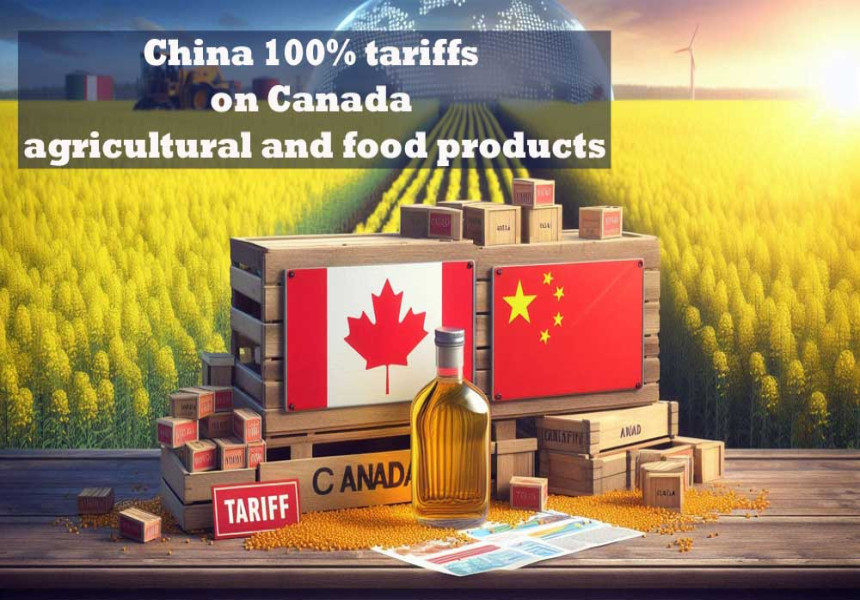China Imposes Retaliatory Tariffs on Canadian Products Amid Escalating Trade War
In a significant escalation of global trade tensions, China has announced plans to impose retaliatory tariffs on certain Canadian agricultural and food products. This move is a direct response to Canada's recent tariffs on Chinese electric vehicles, steel, and aluminum imports.
The tariffs, set to take effect on March 20, include a 100% duty on Canadian rapeseed oil, oil cakes, and peas, as well as a 25% tariff on pork and seafood products.
The trade tensions between China and Canada have been building over the past year. In August, Canada imposed tariffs on Chinese imports, mirroring similar actions by the U.S. and the European Union, citing concerns over unfair competitive practices due to China's subsidies.
Canada's decision to impose a 100% tariff on Chinese electric vehicles and a 25% tariff on steel and aluminum products in October further intensified the situation.
China's retaliatory tariffs are not only a response to Canada's actions but also serve as a broader warning to Canada and Mexico not to align with U.S. trade policies.
The tariffs on Canadian agricultural products, such as canola (rapeseed), are particularly significant, as canola is one of Canada's largest exports to China. This move highlights China's influence as a major market for Canadian goods and underscores its willingness to use economic leverage in trade disputes.
The escalating trade conflict between China and Canada is part of a larger global trade landscape marked by increasing tensions. The U.S., under President Trump, has been a key player in these tensions, imposing tariffs on various countries, including Canada, Mexico, and China.
These actions have prompted retaliatory measures from affected nations, contributing to a complex web of trade disputes that threaten global economic stability.
The imposition of these tariffs will likely have significant economic and political implications for both countries. For Canada, the tariffs could severely impact its agricultural sector, particularly farmers who rely on exports to China. Politically, this move may strain diplomatic relations between China and Canada, potentially affecting future trade negotiations and cooperation on other fronts.
China's decision to impose retaliatory tariffs on Canadian products reflects the deepening trade conflict between the two nations and highlights the broader challenges facing global trade. As trade tensions continue to escalate, both countries must navigate these economic and political challenges to maintain a stable and beneficial trade relationship.









